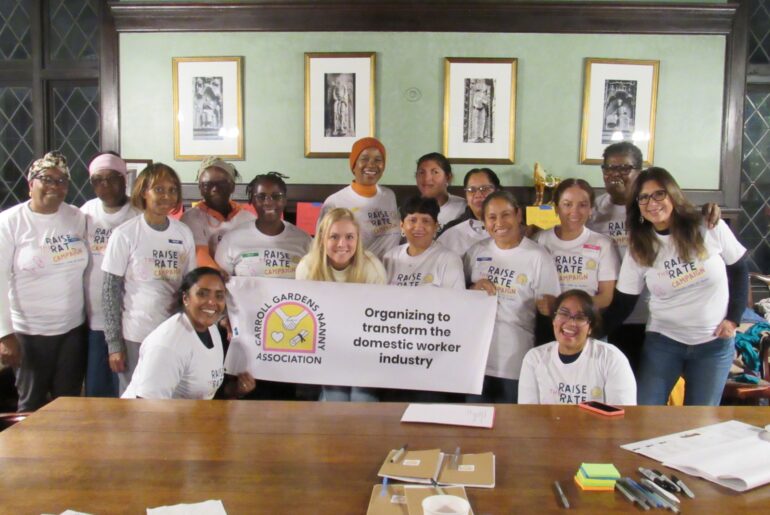Every day, thousands of domestic workers in California clean houses, care for the elderly, or do yard work to support hundreds of families. It is estimated that there are more than 325,000 domestic workers in the state.
If you live and work in California, starting July 1, 2025, you will have new protections: state law expands oversight of the California Division of Occupational Safety and Health (Cal/OSHA) to ensure that employers comply with clear accident and illness prevention measures. This guide explains your rights and how you can protect yourself, including from risks such as wildfire smoke.
A change that recognizes domestic work
For years, many domestic workers were not protected by the same safety and health laws as other sectors, as private homes were not considered workplaces under state law. With passage of SB 1350, this exclusion was removed, and for the first time, Cal/OSHA will be able to oversee companies and agencies that hire domestic workers, to ensure they comply with all safety measures.
Important: This new protection does not cover those who work directly for a family or individual in their own home—for example, if you are a nanny or house cleaner hired without intermediaries, that family is not considered an employer under the law. But if you work for a company or agency that provides cleaning, elder care, gardening, or similar services, you do have the right to demand these measures.
What obligations do companies have?
If you work for an agency or company, your employer must:
- Create, implement, and maintain an injury and illness prevention program.
- Inspect workplaces regularly to identify and correct hazards.
- Ensure that tools and equipment are in good condition.
- Provide and pay for personal protective equipment (PPE) when needed.
- Report serious accidents or fatalities immediately to Cal/OSHA.
These measures are intended to prevent injuries, illnesses, and other risks that may endanger your health.
Rights that workers can demand
As a domestic worker employed by a company or agency, you have the right to:
- Receive clear, no-cost training on potential risks that your work entails and how to protect yourself.
- Request information about accidents or illnesses that have occurred in your workplace.
- Access your employer’s injury and illness prevention plan.
- File a complaint with Cal/OSHA if you observe dangerous conditions, without fear of job loss or retaliation.
Remember: According to Cal/OSHA, your immigration status does not affect your right to work in a safe and healthy place.
How many workers does this benefit?
This new law will benefit tens of thousands of workers who perform their duties through companies or agencies in California. It is estimated that more than 175,000 domestic workers are employed under this type of contract.
“Domestic workers take on some of the most difficult jobs and deserve the same protections as any other worker. It is only fair to take care of those who take care of us,” said Debra Lee, director of Cal/OSHA, in a press release.
It also protects against emergencies such as wildfires
With the arrival of summer, wildfires can affect air quality, especially for those who work outdoors, such as gardeners or caregivers. If this is your case, your employer must:
- Monitor air quality during your workday.
- Adjust schedules or tasks when smoke may affect your health.
- Provide N95 masks to reduce risk and explain how to use them correctly.
- Offer training on how to protect yourself in these situations.
Where to find support
Protecting your health and safety is your right. If you have questions about safety measures at work, you can ask your employer to provide you with their prevention plan in writing and explain the risks to you in your language.
If you need guidance or want to report an unsafe situation, you can visit the Cal/OSHA website, where you will find guides, contact numbers, and forms for filing complaints.
Staying informed is key to protecting yourself and demanding safer working conditions.




